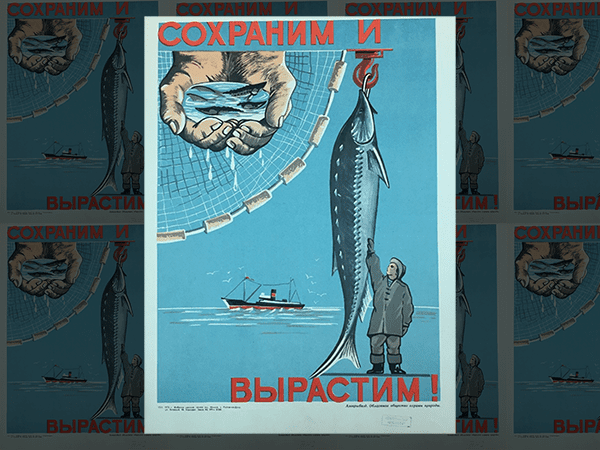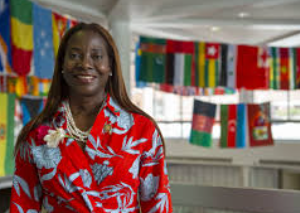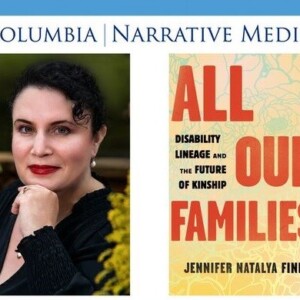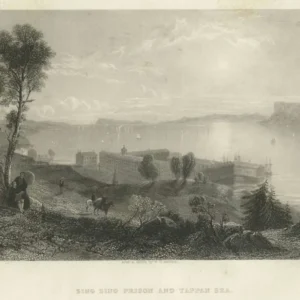
Hooked: A History of the Black Sea in Six Animals
Registration REQUIRED by 4pm on February 6, 2025 in order to attend this event.
Please join the Harriman Institute for a Director’s Seminar with Taylor Zajicek, Postdoctoral Research Scholar. Moderated by Valentina Izmirlieva.
What makes a region? Historians have different ideas. For many, a region is a cluster of cultural, linguistic, and historical traits. Others point to commerce, or geography. But what happens when these networks break down—or when the ecology itself changes? This talk will introduce one such region in flux: the Black Sea. It will trace the Black Sea’s evolution, as both a geopolitical and physical space, through its history of fishing. More specifically, the presentation will explore the interaction of six kinds of animals: three fish, one marine mammal, an invasive comb jelly, and us. Aquatic wildlife shaped the diets and cultures of the Black Sea’s humans for millennia. Yet in recent centuries, these creatures acquired new economic, scientific, and diplomatic significance—with immense (and eventually catastrophic) consequences for the Black Sea environment. This Director’s Seminar will reconstruct this historical arc, from the Greek colonies of Antiquity to the competitive industrialization of the 1930s, to the environmental diplomacy of the Cold War. The presentation (based on fieldwork in Italy, Romania, Russia, Turkey, Ukraine, and the US) will conclude with a discussion of the Black Sea’s ongoing precarity, as a home and battlefield.
 Taylor Zajicek is a historian of Eurasia, the Middle East, and the places that unite them. Zajicek’s first book project is an environmental and transnational history of one of the planet’s most notorious chokepoints: the Black Sea region. The manuscript details how the Black Sea’s fractious geopolitics—from the Cold War to today’s Russo-Ukrainian conflict—have transformed the region’s ecosystems. Each chapter traces a material circulation that transcended the Black Sea’s political divisions. Case studies include scientific research alongside a diverse cast of nonhuman border crossers, such as pollution, dolphins, seeds, Chernobyl radionuclides, and invasive species. The project models a comparative approach to the history of the world’s oceans, whose particularities are often obscured by universal narratives of globalization or ecological decline. Zajicek’s writing is based on archival research in six languages across seven countries. This fieldwork has been sponsored by external grantors, including the Fulbright-Hays Program, Social Science Research Council, and Association for Slavic, East European, and Eurasian Studies. At the Harriman Institute, Zajicek is also working on a desert history of Central Asia and a digital humanities analysis of 1,300 Soviet conservation posters. Zajicek earned his Ph.D. from Princeton University in 2023 and M.A. from the University of Washington in 2014 (the latter as a Gordon C. Culp Fellow). Between graduate studies he interned at the U.S. Embassy to Uzbekistan, worked as a photographer, and taught English in Turkey as a Fulbright grantee.
Taylor Zajicek is a historian of Eurasia, the Middle East, and the places that unite them. Zajicek’s first book project is an environmental and transnational history of one of the planet’s most notorious chokepoints: the Black Sea region. The manuscript details how the Black Sea’s fractious geopolitics—from the Cold War to today’s Russo-Ukrainian conflict—have transformed the region’s ecosystems. Each chapter traces a material circulation that transcended the Black Sea’s political divisions. Case studies include scientific research alongside a diverse cast of nonhuman border crossers, such as pollution, dolphins, seeds, Chernobyl radionuclides, and invasive species. The project models a comparative approach to the history of the world’s oceans, whose particularities are often obscured by universal narratives of globalization or ecological decline. Zajicek’s writing is based on archival research in six languages across seven countries. This fieldwork has been sponsored by external grantors, including the Fulbright-Hays Program, Social Science Research Council, and Association for Slavic, East European, and Eurasian Studies. At the Harriman Institute, Zajicek is also working on a desert history of Central Asia and a digital humanities analysis of 1,300 Soviet conservation posters. Zajicek earned his Ph.D. from Princeton University in 2023 and M.A. from the University of Washington in 2014 (the latter as a Gordon C. Culp Fellow). Between graduate studies he interned at the U.S. Embassy to Uzbekistan, worked as a photographer, and taught English in Turkey as a Fulbright grantee.




